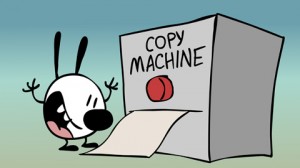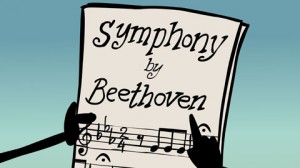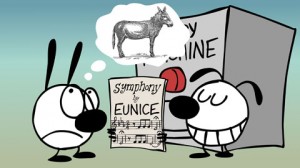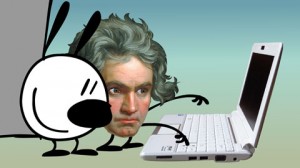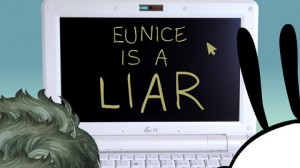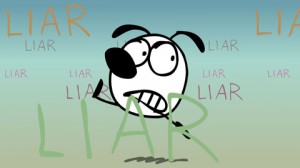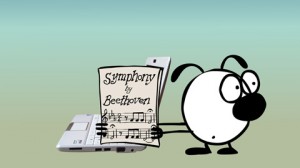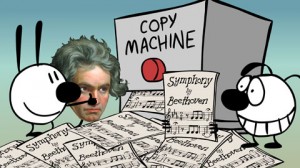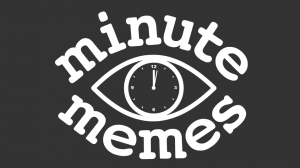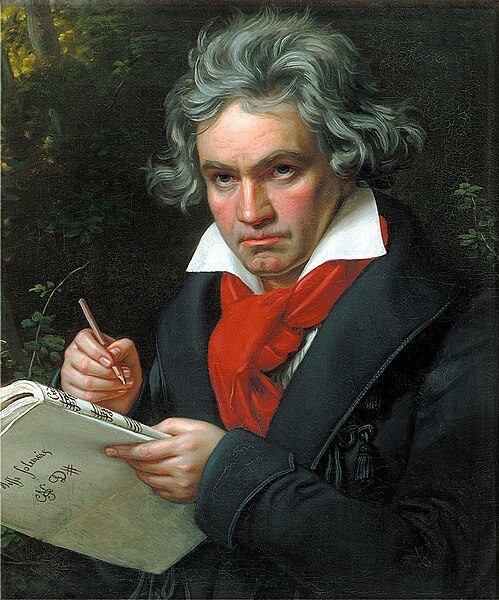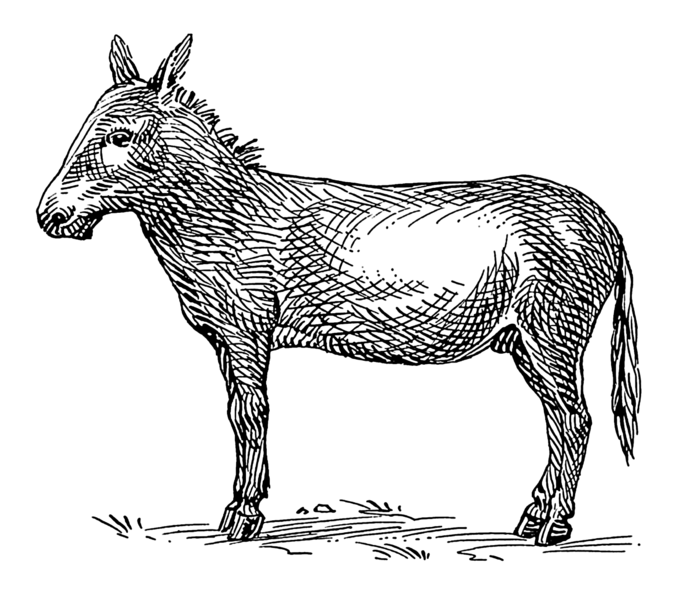“God loves you more than you can ever love Him!” declares the guest speaker of my online cult workshop. I am doing the Twelve Steps with Big Book Awakening, a workbook, study method, and online community (or cult) of over 300 recovering alcoholics, drug users, compulsive eaters, “chaos creators,” and other literal and figurative addicts who attend weekly workshops like this one, in addition to supplemental workshops and homework groups. We are studying the Big Book of Alcoholics Anonymous. We have been working on Step Four, “made a searching and fearless moral inventory of ourselves,” for six weeks now, and today’s topic is “self-defeating beliefs.”
The speaker walks us through an “inventory sheet” of his example self-defeating belief: “God doesn’t love me.” He explains the detrimental effects this self-defeating belief has on his self-esteem, ambitions, security, personal relationships, and so on. Then, his stunning realization: it’s a lie! The truth is, God loves him very much! God loves each and every one of us, for he sent his only son Jesus Christ etc.
Since the start of this workshop five months ago, I have been intentionally, intensively, sincerely, and open-heartedly trying to cultivate faith in a Power Greater Than Myself. I envy this speaker the security and comfort he enjoys, because he believes in a loving God. But he has already alienated me, for as much as I would love to feel loved by an imaginary friend, my pesky need for truth keeps getting in the way.
“‘The truth is, God loves me’ isn’t the Truth!” I later complain to a friend. “It’s a very nice belief, but God is unverifiable and unfalsifiable. The God of Jesus Christ might be a transformative concept, but it’s not in the realm of Truth!”
Born and raised an atheist, I keep returning to my lack of faith. I have been praying for faith for almost 40 years. I have my moments, but the desired faith never arrives. I am not like the Jesus guy, who I assume was raised Christian, left his faith, and came back. We always return to our childhood religion, don’t we? Well mine is atheism, and despite my best intentions it keeps pulling me back. Atheism loves me more than I can ever love it, apparently.
Being in an online cult, I haven’t been giving my atheism the respect it deserves. Instead I feel bad about it, feel Iacking. The best faith I can muster is suspension of disbelief, as when reading fiction or watching a movie.
My fellow cult members are having their own come-to-Jesus moments during today’s Q and A, crying openly while confessing their minds have been blown by hearing the truth that God loves them so much. They too realize their doubts were just a pernicious lie. But my doubts aren’t lying to me. This stuff just isn’t true, and I can’t suspend my disbelief any more.
What am I to do? I’m in a Spiritual Program. Step Two is literally, “came to believe a Power greater than ourselves could restore us to sanity,” and Step Three is “made a decision to turn our will and our lives over to God as we understood Him.” But also I am required to be rigorously honest.
I like being honest. I’m willing to “act as if” I believe in God, but to say “the truth is God loves me” is a lie. Worse than a lie, it’s blasphemy against capital-T Truth and its requirements of verifiability and falsifiability. Sometimes I say the Truth is my Higher Power, and I admit we can know very little about it. Other times I say God is an Imaginary Friend. As long as I know I’m imagining Her, I can imagine Her meeting all my needs for love and security and protection, all those ways my fellow humans fail me. But that’s a psychological strategy, not the Truth.
“Reality is that which, when you stop believing in it, doesn’t go away.” — Philip K. Dick
If God is real, if God is the Truth, then I don’t need to believe in Her (or Him, It, whatever). Praying for faith is just making me crazy. “Let go and let God,” they say; how about I let go of trying to believe in God? The mere thought of giving that up sends me waves of relief.

Recovering addicts tend to huff God the way they huff inhalants.
They tend to see things in black and white; as page 53 of the Big Book says, “either God is everything or else he is nothing.” They go all in on the faith project.
Active alcoholics have drinking buddies; recovering alcoholics have prayer partners. It’s all a great improvement over substance abuse, and I’m happy for them. They get high on God. But I can’t get high with them.
My cult workshop reminds me of being at a party where everyone is drinking and using except me. (A non-drinker, I am in recovery for behavioral compulsions, not drug use.)
At times I have tried very hard to enjoy alcohol and drugs, withstanding their horrible tastes and smells in pursuit of the alleged buzz. But as with my pursuit of faith in God, always I failed. At best I could pretend.
At KROK, a Russian animation festival on a river cruise boat, I learned to “drink” socially by filling my glass with water and not telling anyone it wasn’t vodka. I could do that with God too, but why? Especially as my cult asks me to be rigorously honest, as well as faithful. Maybe I can’t be both.
“There lives more faith in honest doubt, Believe me, than in half the creeds.” — Alfred, Lord Tennyson
My attempts to cultivate faith have brought me back to atheism. I am an Unbeliever.
But for an unbeliever, I sure cling to a lot of other beliefs. God may not be among them, but many of my beliefs are at least as untrue, and far more destructive.
Beliefs are heuristics, a word I just learned a few days ago: shortcuts for reasoned thought. They are essential for navigating everyday life, when there’s simply not enough time to reason out every decision. As much as I cherish my skepticism, I simply can’t be skeptical of everything at every moment. I must believe to function.
I have scrutinized my relationship to God, or the concept of God, for decades. I have scrutinized my atheism. I have tried to instill in myself a handy shortcut — faith, prayer — to help me navigate life, and it hasn’t fully taken. But you know what has fully taken, what persists in this alleged unbeliever’s head? Self-loathing, despair, and what AA calls “100 forms of fear.”
If someone doesn’t like me, I believe that something is wrong with me.
I believe I should change myself to please others.
I believe I should be different from how I am.
I believe I am defective.
I believe I am a bitch, a monster, a parasite, a witch, a failure, bad at choosing friends, abused, exploited, betrayed, crazy, neglected, obsolete, ruined, subhuman, unworthy…
And so on, into the 100’s.
Of course I don’t consciously believe any of this; I’ve looked at my fears before, I’ve “done the work.” But there they are anyway, sneaking back again and again, and there I am believing them without realizing it.
My own stunning realization is, if I’m such an incorrigible atheist, I needn’t believe any of this nonsense. Unlike my cult’s Jesus-loving guest speaker, I don’t have to assert any contrary Truth; many of my beliefs are also in the realm of the unverifiable and unfalsifiable. Instead, I simply withdraw my belief. I don’t have to believe anything. I mean, I have to believe some things; as I said above, I need beliefs to function in daily life. But shitty beliefs, beliefs that hurt me? I need only doubt them.
That is the Power of Doubt.
In slogging through BBA’s weeks of “fourth-step inventory” worksheets, I saw that I feel unprotected. It’s a bad feeling. The solution, I thought a few weeks ago, is to seek protection in God. I prayed for faith in God, for protection, and for faith in God’s protection. I got caught in the rain on a bike errand and thought, “God is protecting me.” I got wet. I thought, “God’s protection is permeable.” I developed an apologetics of God’s protection. I wasted significant brainpower on this, because honestly being unprotected scares me, and the Truth is I can’t protect myself fully, and God doesn’t actually exist (although I could still Act As If I have an Imaginary Friend, which would go a long way to alleviate my fears).
Then a few days ago I met the belief, “I am unprotected” with doubt, and it evaporated. I didn’t have to prove anything otherwise; I simply didn’t believe it. I reminded myself I am an atheist. I have faith in my atheism.
“I am unprotected,” says my brain. “I don’t have to believe that,” I say back. And the fear slinks away from the power of my doubt.
Thus my doubt brings me to the same place I thought (believed) I needed faith to find.
“Faith works for them that got it.” —Unknown
There are limits to my doubt, just as there are limits to my faith. Sometimes I got faith. My mind needs shortcuts and doesn’t have time to properly doubt everything. I still believe many things, and will continue. And the power of my doubt is not so strong I can rely on it constantly. I am an atheist, but one who lapses often.
Faith is a lapse of doubt, just as doubt is a lapse of faith. Doubt and faith are like left and right hands. I can get by temporarily with just one, but do so much more with both.
Related:
Mimi & Eunice Recovery comix – read oldest to newest
Synaonon – what happens when 12-step programs go off the rails










